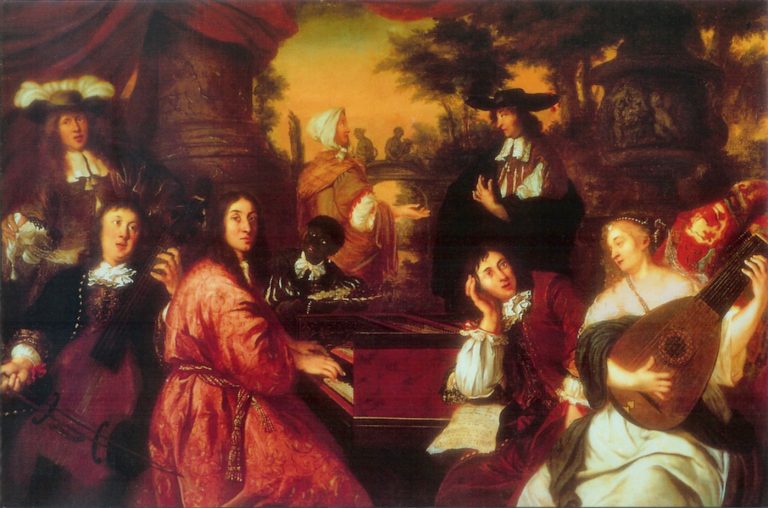Johannes Voorhout (11 November 1647 in Uithoorn, North Holland – buried 25 August 1717 in Amsterdam) was a Dutch Golden Age painter.
Voorhout was the son of the Amsterdam clock maker Cornelis Voorhout. Seeing that his son was greater than before suited to drawing than the perplexing aspects of watch making, he apprenticed him to Constantijn Verhout in Gouda. This Verhout was a painter of modern history scenes, and after 6 years, he moved support to Amsterdam in 1664 to play a part in the workshop of Jan van Noordt, a chronicles and portrait painter. After effective there for 5 years, he married in 1670, and in 1672, worried approximately a pending violent behavior by the French, he fled the country and settled in Friedrichstadt, where his wife had some friends, and he was expected by Juriaan Ovens. Ovens wanted him to come play in for him, but Voorhout turned all along his offer, but followed his advice to try his luck in Hamburg. There he was quite successful, and that is where his son Johannes was born in 1677.
For Dirck Clant of Groningen, the lord of the Castle Hanckema, Voorhout painted a large portrait of the Stadthouder William III on horseback for him, that was innovative placed in his castle near Groningen as an over-the-mantel piece. This portrait is now in the Groninger Museum and was unconventional used in the 1930s as a model for the Dutch 500 guilder note.
Having heard that the politics of Amsterdam were back up to normal, he returned there in 1677, where he started his own workshop. He taught his son Johannes II, and Ernst Stuven, but never had the completion that he had enjoyed in Hamburg. This was partially because he was consequently productive, that customers couldn’t make a choice subsequent to they came to his studio, but with it was a outcome of the promote in Amsterdam bodily much more competitive than in Hamburg, due to the high number of skilled painters there. Houbraken ends his biographical sketch of him when the comment that he was perhaps too focused on painting itself; and spent too Tiny time upon commercial interests such as flattery and deception.
What do you think of the works of Johannes Voorhout?
Use the form below to say your opinion about Johannes Voorhout. All opinions are welcome!
